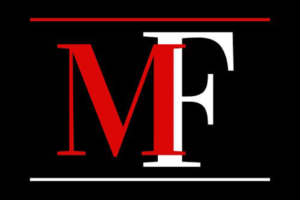Regularly analyzing a company’s product portfolio is important for developing successful sales and marketing strategies. While there are various methods to conduct such an analysis, many businesses favor the BCG matrix due to its straightforward and accurate approach.
The BCG matrix is a business planning tool used to evaluate a company’s market position. It classifies a company’s products or services based on their market share and growth rate, providing a clear view of where each product stands in the market.
Today, we are going to do analysis of BCG matrix of Adidas—an iconic name in sportswear. Let’s start with the brief history of Adidas.
Brief History of Adidas
Adidas, officially known as Adidas AG, is a German company that makes sportswear, shoes, and other athletic products. In the 21st century, Adidas became the top sportswear brand in Europe and the second-largest globally, just behind Nike. The brand is easily recognizable by its distinctive three-stripe logo.
In the 1950s, Adidas gained popularity as football players began using its lightweight shoes with screw-in cleats. The company continued to grow, and by 1963, it had expanded its product range to include various types of gear. Four years later, Adidas started producing clothing as well.
Adidas BCG Matrix—Detailed Analysis

The BCG matrix for Adidas, like other matrices, divides products into four main categories:
- Stars
- Question Marks
- Cash Cows
- Dogs
Here’s how Adidas organizes its products using this matrix.
Stars
Products in the Stars category have high market share and high market growth. These are the company’s top earners and require minimal investment to maintain their leading position. For Adidas, the Star products are the Adidas and Reebok brands. These brands hold a large market share in the competitive sports and fitness industry, with Nike being a major rival.
Question Marks
Products in this category have a low market share but show high market growth potential. With the right focus and development, these products can boost sales and profitability. For Adidas, Taylor Made and Rockport fall into this category. Although they currently have smaller market shares, they have the potential for growth if Adidas invests in their development.
Cash Cows
Cash Cows have a high market share but little potential for market growth. These products or services make consistent income but do not expand much further. For Adidas, its clothing and apparel are considered Cash Cows. While these products do well in the current market, they need to be strategically placed in new geographic areas to maximize their value.
Dogs
Products in the Dogs category have low market share and minimal growth prospects; they are usually at break even. Adidas sunglasses and hats fall into this category. They are less popular compared to other products and face stiff competition. Despite their low performance, Adidas continues to find ways to keep these products relevant in the market.
Summing it up
Adidas AG is a German company known for its sportswear, shoes, and athletic gear. By the 21st century, it became Europe’s leading sportswear brand and the second-largest worldwide, following Nike.
The BCG matrix classifies Adidas’ products into four types: Stars (top earners like Adidas and Reebok), Question Marks (high growth potential like Taylor Made and Rockport), Cash Cows (steady income products like clothing), and Dogs (low growth and market share like sunglasses and hats).
